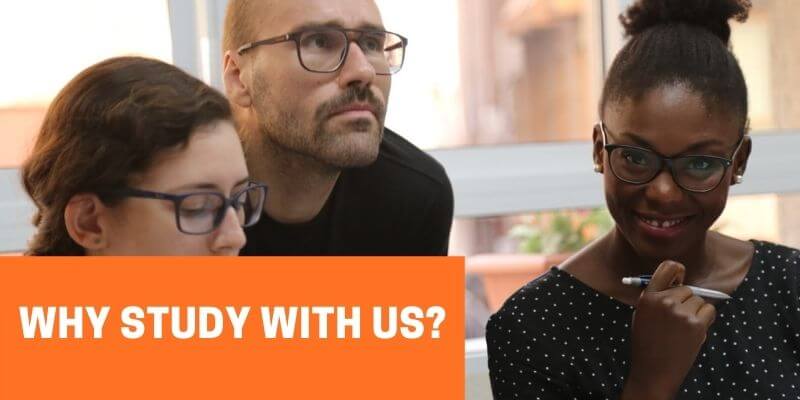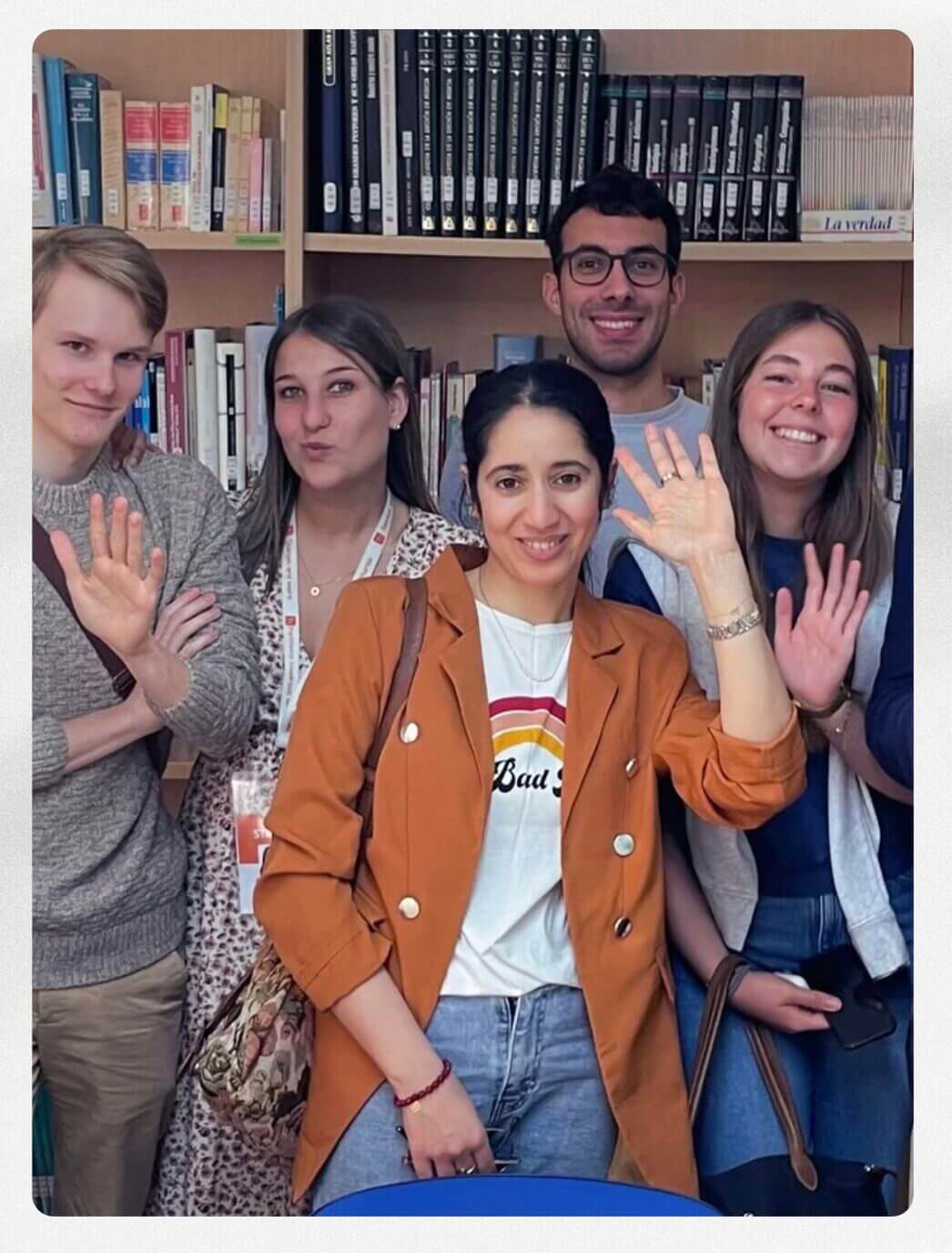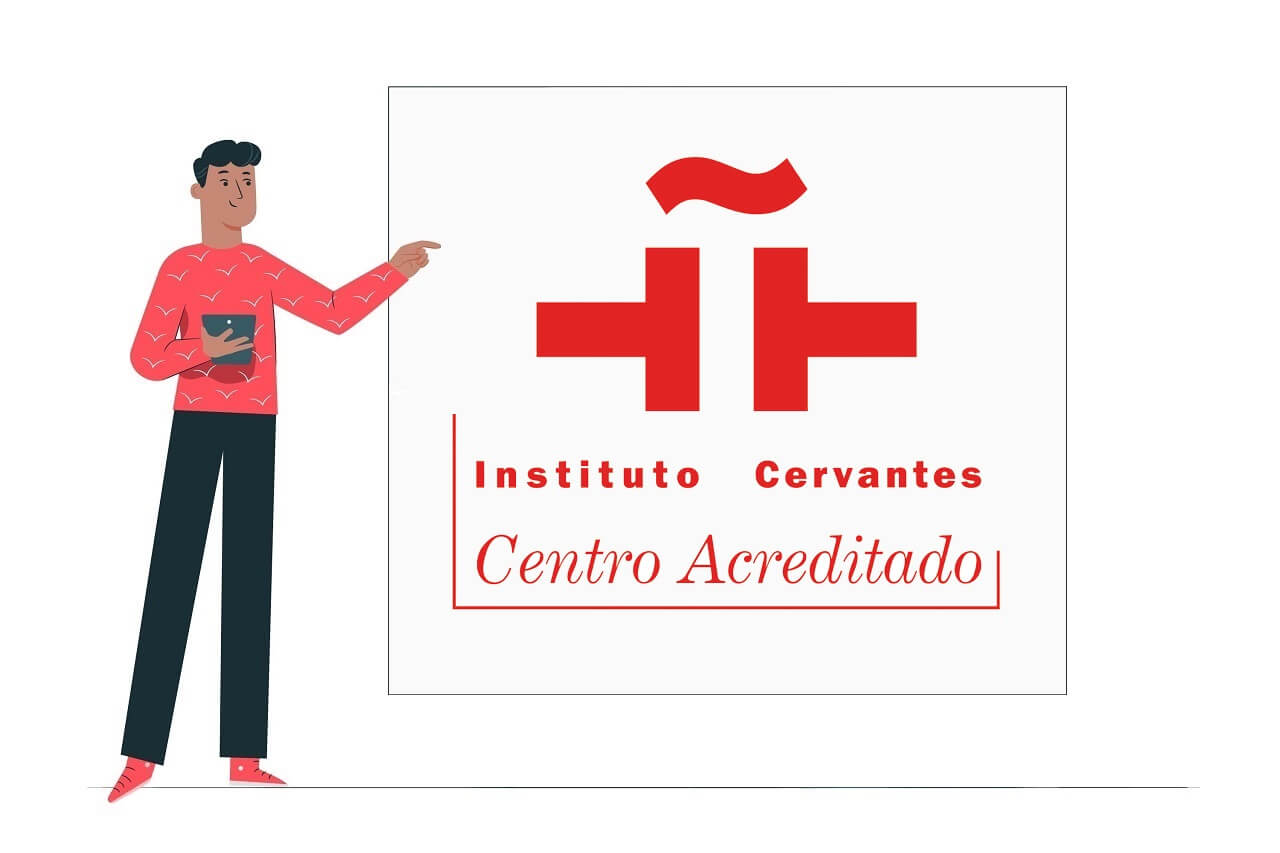📘 Spanish (5 months) + 🎓 Vocational Training (1.5 or 2 years) + 💼 Real work experience
Spanish Course + Vocational Training (FP)
20 | 30 hours / week
🎯 Study Vocational Training (FP) in Murcia
Your professional future starts here, in Murcia
Would you like to live in Spain, learn a profession, and obtain an official qualification recognized throughout Europe? With our combined Spanish + Vocational Training programme, you can make it happen!
Spain is one of the most attractive destinations for those who want to receive professional training while enjoying an international experience. Vocational Training (FP) offers practical, modern, employment-focused studies that prepare students to work in different sectors with a solid technical and professional foundation.
And we help you take that step — even if you don’t speak Spanish yet.
Turn your education into an international experience with a real future.
Other schools provide Spanish courses. We offer experiences!
Spanish Course + Vocational Training (FP)
From
€ 4699
Taxes included
€ 39 inscription fee and € 45 first batch of books.
- Lessons / week: 20 | 30
- 1 lesson:50 minutes
- Start:April 1st
- Starting Dates:Spanish course: April 2026 – August | FP course: September – June 2028
- Duration:Spanish course: 5 months | Vocational Training: 1.5 or 2 years
- Levels:from zero Spanish level
- No. of students:min. 3 | max. 15 | average 6
- Certificate
🇪🇸 Part 1: Spanish Course (5 months)
👉 Start from zero and reach a B1.2 or even B2.1 level. With this level, you’ll be able to understand, participate in, and successfully pass your FP classes without difficulty.
📍 The course is taught atInstituto Hispánico de Murcia, a school accredited by the Instituto Cervantes, which allows you to apply for your student visa without any problem. This part of the program consists of 5 months (approx. 420 lessons) of Spanish classes, with a practical and communicative focus, fully adapted to your needs, in an international and welcoming environment.
🗓️ Dates:
- Start: early April
- End: late August
We guarantee a B1.2 or B2.1 level as long as you attend your Spanish lessons regularly and follow your teacher’s guidance. At the end of this phase, there will be a level exam to confirm that you are ready to continue with the FP vocational training programme.
💼 Part 2: Vocational Training Cycle (FP) – 2 Years


- Start: early September
- End: end of June

These are our proposals. Click on each of them for more details, and if YOU ARE LOOKING FOR A DIFFERENT TRAINING PROGRAM, get in touch with us:
ALL PROGRAMMES INCLUDE REAL INTERNSHIPS IN COMPANIES WITH A VERY HIGH POSSIBILITY OF EMPLOYMENT AFTERWARDS
To make a long story short:
📘 SPANISH CLASSES (April–August) + 🎓 VOCATIONAL TRAINING (September–June) + 💼 REAL WORK EXPERIENCE
What is the price of these courses and how do I pay?
INTERMEDIATE VOCATIONAL TRAINING
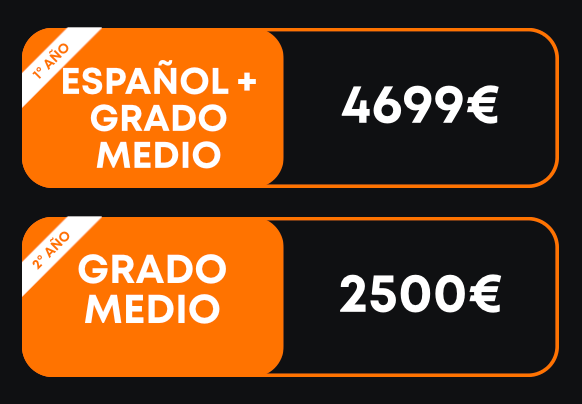
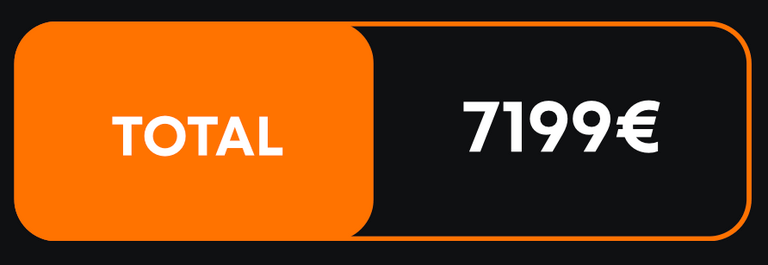
ADVANCED VOCATIONAL TRAINING
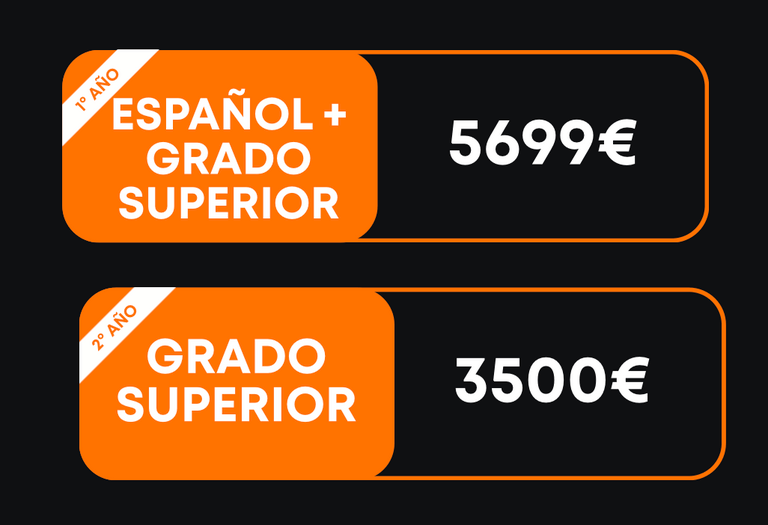
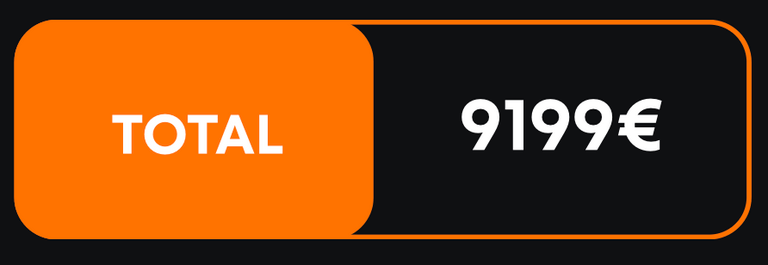
PAYMENT OPTIONS
First year: full payment required.
Second year: monthly payments available for your convenience.
ENROLMENT & PAYMENT DETAILS
- Enrollment: all year around
Deadline to enrol, pay, and secure your place: 25 March.
All payments are made directly to our school.
Prices include enrolment fees and learning materials.
Taxes included. No hidden costs. No surprises.
Write to us at hola @ ihdemu.com for full details and guidance.
HOW TO APPLY
- Please email us a copy of your passport at hola @ ihdemu.com, clearly stating WHICH COURSE you are interested in.
- Then, make the corresponding payment either by credit card through our SECURE PAYMENT link, or by bank transfer using the details below:
- Bank: Sabadell
- Address: Calle Salzillo, 7, 30001 Murcia, Spain
- Account holder: Instituto Hispánico de Murcia S.L.
- IBAN: ES63 0081 1162 37 0001121814 BIC / SWIFT code: BSABESBBXXX

Once the bank confirms receipt of the payment, we will send you your enrolment certificate within 48 working hours.


REFUNDS & CANCELLATIONS: See all conditions here.
NEED A STUDENT VISA? Make sure you read this information and consult your lawyer or nearest Spanish Consulate.
LOOKING FOR ACCOMMODATION? We’ve got you covered. Check your options here.
General Information about Vocational Training Courses
All these Vocational Training programmes are highly in demand and include 2,000 hours of training. Each programme includes 500 hours of real work placements in companies (140 hours in the first year and 360 in the second one).
Internships are 100% guaranteed, something that many other training centres do not offer.
- Timetable: Morning 08:30 to 15:00 or afternoon 15:00 to 21:30, i.e., 30 hours per week
- Maximum number of students per class: 30
🎓 What is the difference between Advanced and Intermediate Vocational Training?
Intermediate VET
Level: Equivalent to the Spanish Bachillerato for employment purposes, but more practical.
Entry requirements:
Have a Secondary Education (ESO) diploma, or
Have passed an access test (if you don’t have ESO and are at least 17 years old).
Duration: Typically 2 years (around 2,000 hours).
Objective: To prepare you for a specific technical profession (for example: nursing assistant, mechanic, hairdresser, administrative management technician, etc.).
Career Opportunities:
Enter the job market directly after completing the course.
Continue your studies in an Advanced VET programme if you take a bridge course called Curso de Acceso a Grado Superior or complete the Bachillerato.
Advanced VET
Level: Equivalent to the initial university level (Level 5 of the European Qualifications Framework).
Entry requirements:
-
Completion of Bachillerato (Spanish high school diploma), or
-
Completion of an Intermediate VET Diploma and the access course to Advanced VET, or
-
Passing an entrance exam (if you are 19 years or older).
Duration: 2 years (approximately 2,000 hours).
Objective: To train higher-level technicians with a more specialized profile and the ability to take on intermediate responsibilities.
Career opportunities:
-
Enter the labor market with better employment conditions.
-
Or continue studying at university (many degree programs recognize FP credits).
In summary, the main differences between Intermediate (Grado Medio) and Advance (Grado Superior) Vocational Training (FP) in Spain lie in the level of studies, entry requirements, and career or academic opportunities.
🌍 Specific Requirements for International Students:
1️⃣ Recognition of Qualifications
To study Vocational Training (FP) in Spain, international students must have their completed secondary or high school studies officially recognized or validated. This process officially acknowledges your foreign studies as equivalent to the Spanish ESO or Bachillerato.
🔸 How is it done?
The procedure is carried out through the Ministry of Education, Vocational Training, and Sports of Spain.
It can be submitted from your home country, via the Spanish Consulate or Embassy, or once in Spain at any local education office.
Required documents typically include:
Certified copy of your diploma or degree (secondary school or Bachillerato).
Academic transcript with subjects studied and grades obtained.
Copy of your passport or ID.
Official Spanish translation of all documents (if they are not in Spanish).
The process may take several months, so we recommend starting it well in advance. For this reason, you can present the application receipt, or “volante”, when enrolling in our vocational training courses. The “volante de solicitud de homologación” is a provisional document that proves you have submitted your application for recognition and allows you to enrol on a conditional basis while your application is being processed. It is issued when you submit your request, specifying the purpose and providing your personal details.
👉 In all cases, we strongly advise obtaining up-to-date and reliable information from the official website of the corresponding Ministry or the nearest Spanish Consulate.
In this link and in the video below, you will find very useful information about the recognition and equivalence of non-university studies completed abroad.
2️⃣ Spanish language competence
To successfully follow FP classes, a Spanish level of B1.2 or B2.1 is required, depending on the program.
Our 5-month intensive Spanish course fully covers this requirement.
3️⃣ Student visa
International students must apply for a Spanish student visa at the consulate in their country.
Our school meets all official requirements, being accredited by the Instituto Cervantes, which greatly facilitates the visa application process.
🚀 Advantages of this Training Programme
✨ High employability: over 40% of job offers in Spain seek FP graduates.
✨ Shorter duration and 100% practical training.
✨ Official qualification recognized throughout the European Union.
✨ Life in Spain: culture, cuisine, safety, and quality of life.
✨ Guidance throughout the process — from your arrival to your professional internships.
Watch this video about the advantages and career opportunities available when entering the job market after completing your Vocational Training (FP) programme.
Which is better, Vocational Training (FP) or University?
💼 Vocational Training (FP)
In summary, if your goal is to enter the job market quickly with practical, hands-on training and high employability, FP clearly stands out.
If you are looking for a more academic, theoretical, or long-term specialized career, university is your path. But here are more details:
ADVANTAGES:
High employability: in Spain, more than 40% of job offers target FP graduates.
Practical, hands-on training: from the first course, you do real internships in companies.
Shorter duration: 1.5 to 2 years.
Highly demanded professions: healthcare, IT, renewable energy, administration, early childhood education, hospitality, etc.
Possibility to work and continue studying (you can access university after FP if you wish).
Lower cost and quick return on investment.
DISADVANTAGES:
Not ideal if your goal is research, university teaching, or certain high-level management positions.
Some FP programs have limits on progression if not followed by higher studies.
🎓 University
ADVANTAGES:
Provides a more theoretical and academic education.
Ideal if you aspire to regulated or specialized professions (medicine, law, architecture, etc.).
Opens the door to research or high-level management jobs.
DISADVANTAGES:
Long duration (minimum 4 years, sometimes more).
Much theoretical content, less practical experience.
High competition and slower job market entry: many graduates end up doing unpaid internships or master’s degrees to start working.
If you want to study at university, we offer this preparatory course for university entrance, called SELECTIVIDAD.
🌟 Live, learn, and work in Spain!
Turn your education into an international experience with a real future. Instituto Hispánico de Murcia offers you the complete path.
👉 YOUR FUTURE STARTS HERE. DON’T MISS THIS OPPORTUNITY.
Frequently Asked Questions about the Spanish + Vocational Training Programme
If your goal is to enter the job market quickly with practical, hands-on training and high employability, FP is the clear winner.
If you are looking for a more academic, theoretical, or long-term specialized career, university is the right path.
We include a 5-month intensive Spanish course (from April to August) so you can reach the required B1 or B2 level before starting your FP studies in September. No prior knowledge of the language is required.
Yes. Instituto Hispánico de Murcia is accredited by the Instituto Cervantes, which means we meet all the official requirements for you to apply for a Spanish student visa without any issues. This programe is approved for the student visa and for social integration (arraigo social). We will assist you with all the necessary documentation throughout the entire process.
It will be a single enrollment document.
Very high. FP programs include internships in real companies, and many of them offer contracts once the training period is completed. Spain has a strong demand for technical professionals in sectors such as healthcare, IT, hospitality, early childhood education, and administration, so job opportunities are excellent.

